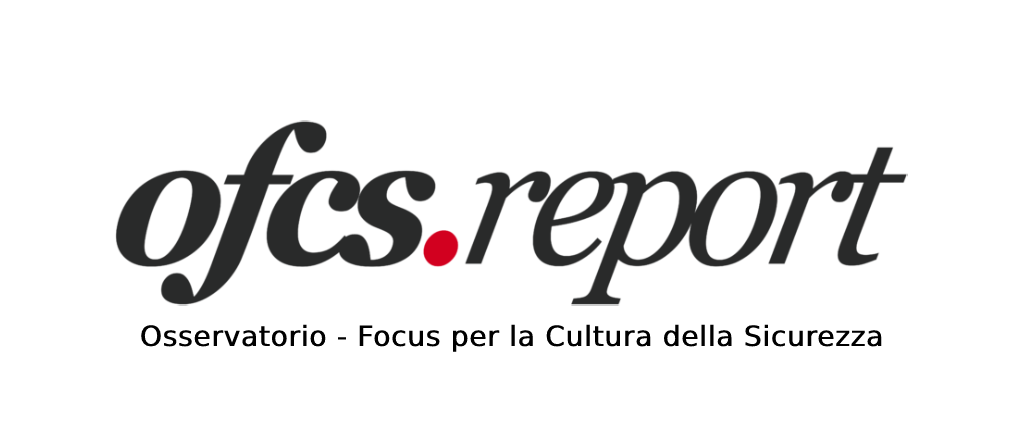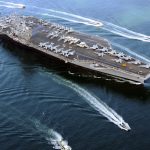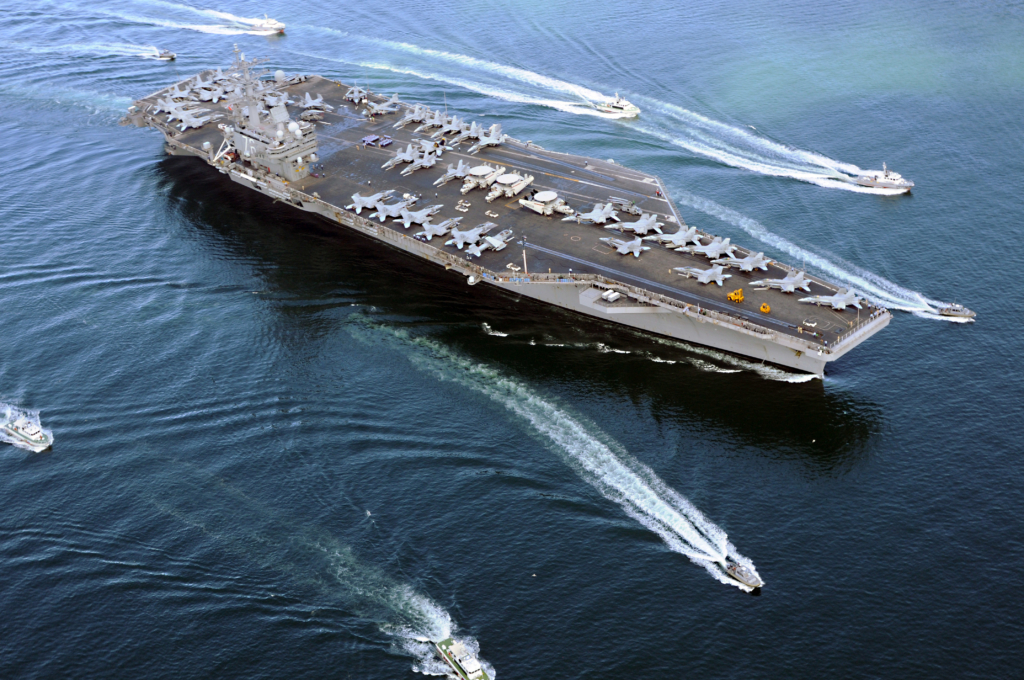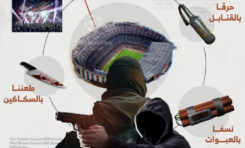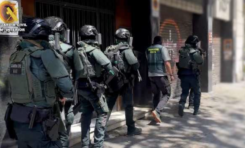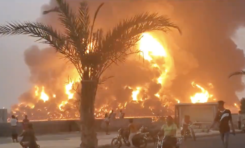“La nostra prima linea di difesa resta l’economia. È necessaria un’economia forte per permettere una moderna difesa del tipo richiesto dai vari membri della Nato. Un’altra linea cruciale è una rete di alleanze forti e cooperative. Infine, approdiamo alle strategie di intelligence e alle operazioni militari che richiedono risorse umane e una potente macchina operativa. Sia il requisito delle capacità delle risorse che quello concernente il lato tecnologico, cambia solo in termini di grandezza, è stato sempre così”. Michael Yon, scrittore e fotoreporter di guerra, noto nel panorama militare americano per la sua lunga esperienza come membro delle forze speciali in passato impegnato in teatri operativi come Iraq e Afghanistan, attualmente si occupa di geopolitica. Parlando con Ofcs.report ha spiegato quali saranno le sfide che il Dipartimento della Difesa degli Stati Uniti dovrà affrontare.
Uno studio sul Fiscal Act del 2017 evidenzia come, nei prossimi anni, sia necessario per il Dipartimento della Difesa americano riorganizzare le varie strutture operative proprio per poter raggiungere al meglio quella “superiorità” tecnologica tanto ambita dal sistema militare statunitense e riuscire, nel contempo, ad amministrare al meglio la necessità di condurre valide operazioni commerciali ad hoc per la Difesa. Lo stesso Fiscal Act richiede una “cultura” dell’innovazione ai massimi livelli che deve essere strutturata, nella maniera più rapida possibile, nei vari settori della tecnologia della Difesa, per difendere il paese da quelle minacce alla sicurezza messe in atto da talune nazioni. Un importante focus è dedicato alla forza navale e alla necessità di una Marina più potente, con l’ambito traguardo di un importante aumento di navi, inclusive di sistemi equipaggiati o meno (manned e unmanned ). Anche nel caso specifico della Marina Militare statunitense, nuove tecnologie e nuovi concetti operativi sono le priorità dei nuovi assetti compresa la competitività e la necessità di un miglioramento celere. Questo anche in virtù del fatto che sia la Cina, come pure il Nord Corea e la Russia, hanno tra le priorità assolute, dal 2015, la realizzazione di una Marina Militare più potente. La stessa Marina Militare russa, nel mese di aprile, ha lanciato il secondo dei suoi sottomarini d’attacco classe Yasen- M. Da qui la necessità di costruire nuove e più moderne fregate e corvette per confermare l’espansione russa nell’area baltica.
Non crede sia una paradosso il fatto che la grande recessione del 2007 abbia portato le varie nazioni a riesaminare le spese per la difesa nazionale proprio in tempi in cui la sicurezza è sempre più miliare? La necessità di ridurre le spese può accordarsi con quella di maggiore sicurezza?
“Senza l’oro non ci può essere l’acciaio e senza l’acciaio non ci può essere l’oro. Tutto risale al primo fondamento della difesa, ossia l’economia”.
Come partner dell’Esercito e dell’Aeronautica, le forze navali sono spesso al primo posto e continuano a preservare gli interessi degli Usa. La Marina Militare e i Marines sono sovente utilizzati per attività rapide, come ad esempio aiutare le popolazioni locali vittime di disastri naturali o attacchi terroristici. Quali sono a suo parere le sfide più difficili che la Marina dovrà affrontare nel prossimo futuro?
“La difesa nazionale diventa una priorità nazionale, è il tema principale. Se parliamo di missioni primarie militari dei membri Nato, le questioni umanitarie e i disastri naturali non lo sono. Certo, poiché le varie forze militari dispongono di mezzi di trasporto quali navi o elicotteri, sono in grado di svolgere missioni multitasking e necessariamente sono di ausilio durante la gestione delle crisi. Per quanto concerne, invece, la gestione degli attacchi terroristici, pur essendo una questione di difesa nazionale, queste a volte necessitano di essere gestite dalle forze di polizia, altre volte da quelle militari o di intelligence. Quindi la escludo come sua sfida principale”.
Cosa pensa della carneficina avvenuta a Las Vegas? E’ giunto il momento di una nuova legge per la detenzione delle armi negli Stati Uniti?
“Nel momento in cui Lei mi intervista, all’indomani della strage, non c’è alcun dubbio che l’attacco a Las Vegas, piuttosto che un attacco terroristico, risulta essere il risultato della pazzia di un uomo. Forse nel futuro le sue motivazioni risulteranno più chiare. Sa bene che esistono grandi e importanti differenze tra attacchi terroristici, quelli della criminalità comune e un atto di follia. Per quanto riguarda la politica interna sulla detenzione delle armi negli Stati Uniti, si tratta di una questione nazionale degli americani e non trova posto in discussioni, come questa, sulle questioni internazionali in materia di difesa”.
————————————————————————————————————————–
“Our first line of defense is the economy. A strong economy is required to afford modern defense of the sort required by NATO members. Another crucial line of defense is a network of strong, very cooperative alliances between partner nations. And finally comes the nuts and bolts of intelligence and military operations that require people and machine power. The people power requirement does not change other than in magnitude, the technological side is neverending and has been this way for thousands of years.”
Michael Yon, an American writer known for his long experience as a former member of the US Special Forces and engaged in the past in operating theaters such as Iraq and Afghanistan and currently engaged in geopolitical issues, military, quoted by several American columns (The New York Post and National Review Online), or as his appearances at the CBS Early Show and Good Morning America. Being interviewed on Ofcs.report, we talked about the new challenges the US Defense should be focused on.
Following a study about the American Fiscal Act of 2017, it emerges in the coming years the need for the US Department of Defense to reorganize the various operating structures precisely to achieve the technology’s “superiority” very much planned by the American military system and to succeed , at the same time, to better manage the need for conducting proper business defense operations. The Fiscal Act itself requires a “culture” of innovation at the highest levels that must be structured as quickly as possible in the various areas of defense technology , capable to defend the country from those security threats put in place by certain nations. An important focus is on the USNavy along with the need for a more powerful Navy with an important number of new ships, including manned and unmanned systems. Even in the specific case of the US Navy, new technologies and new operating concepts are the priorities of new arrangements, including competitiveness and the need for rapid improvement. This also because China, as well as North Korea and Russia have made a major priority since 2015 the creation of a more powerful Navy. The Russian Navy itself, in April, launched the second of its Yasen – class attack submarines. Coupled to this we see a need for the same Navy to build newer and more modern frigates and corvettes to confirm the Russian expansion in the Baltic area.
“The writing is clear on the wall, times ask all worldwide nations to renewal their “Defense Models “, acquisition, technology and logistics organization, too. Which are in your opinion the challenges the US Department of Defense has to face reorganizing to pursue in the best way a technological superiority, affordable systems, and business operations at their best?
Our first line of defense is the economy. A strong economy is required to afford modern defense of the sort required by NATO members. Another crucial line of defense is a network of strong, very cooperative alliances between partner nations. And finally comes the nuts and bolts of intelligence and military operations that require people and machine power. The people power requirement does not change other than in magnitude, the technological side is neverending and has been this way for thousands of years.
Is it a paradox that since economic worldwide crisis spread out in 2007 and it has led nations to review their defense expenses , just in times we live, where safety and defense is more and more miliar, ? Can a need of reducing expenses match with a need of safety? This goes back to first underpinning of defense is the economy. Without gold, there will be no steel. And without steel, there will be no gold.
“As full partners with the Army and Air force, Naval forces are often first on the scene and continue to preserve US interests. National leaders can use Navy and Marines to react quickly to help local population recover from natural disaster, attack terrorist, and suppress more sophisticated attacks”, which are the hardest challenges to face Navy in the next future? Humanitarian issues and natural disasters are not the primary missions of the militaries of NATO members. National defense is the primary issue, and since various military forces have resources such as ships and helicopters that can perform many tasks, naturally they are called upon during crisis. Terror attacks are a matter of national defense sometimes best handled by police, other times military or intelligence assets.
Last but not least, Mr Yon what idea have you got about last “ terror” attack Las Vegas suffered, is it time arrived to a new law for detention for weapons in the US ?
At this point, I have seen no evidence that the Las Vegas attack was a terror attack. At this time, it looks to have been the work of a madman. Perhaps later we will learn his motivations. There is are big and important differences between terror attacks, common criminality, and acts of madness. As for US domestic gun policy, that is a domestic issue for Americans and has no place in discussions on international defense issues.
